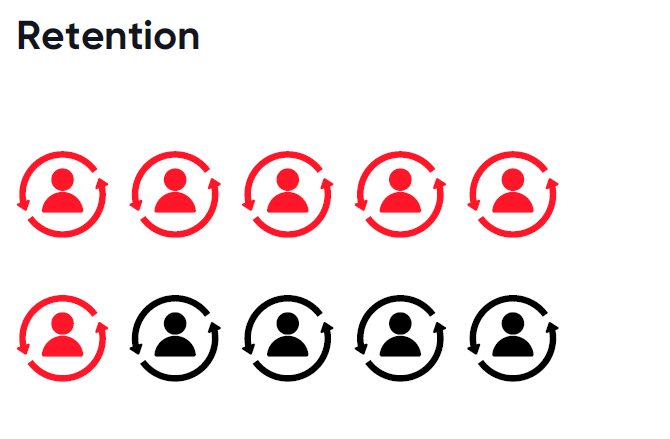Reading Time: 6 minutes
In today’s workplace landscape, Diversity, Equity, Inclusion, and Belonging (DEIB) are more than buzzwords. They are essential elements for fostering a thriving organizational culture. According to the 2024 report by Great Place To Work®, India’s best workplaces have made significant strides in these areas, demonstrating how a strong DEIB framework can benefit employees and businesses alike. Below, we explore data-driven insights from the DEIB 2024 report, highlighting its impact on individual growth, business success, and societal progress.
The Business Value of DEIB
Great Place To Work’s 2024 data shows that organizations investing in DEIB see a tangible positive impact on business outcomes. More than 70% of organizations in the report believe prioritizing DEIB has spurred greater innovation, reduced attrition, and increased productivity. Employees who feel a sense of belonging through DEIB are 4.3 times more likely to look forward to coming to work, underscoring how inclusive environments foster both engagement and motivation. When diversity is prioritized, employees are empowered to bring unique perspectives, boosting creativity and revenue growth.

The correlation between DEIB and organizational loyalty is also noteworthy. Employees who experience a blend of diversity, equity, and inclusion are 3.4 times more likely to remain with their organization long-term. By enhancing workplace culture, companies can improve employee experiences, increase retention, and strengthen their reputation as an employer of choice.

Enhancing Employee Well-being and Growth
Great workplaces in India are also fostering employee well-being and career growth. The report indicates that the best workplaces are rated significantly higher in areas such as psychological safety, team spirit, and work-life balance. Specifically, 85% of employees in these best workplaces feel a sense of belonging, compared to only 78% in other organizations. This strong sense of community is further strengthened by initiatives aimed at supporting mental health and enabling employees to learn from their mistakes. These programs help individuals feel safe, valued, and supported, leading to higher productivity and job satisfaction.

Leadership development and career advancement are essential elements of DEIB-focused workplaces. In the best workplaces, 81% of employees report having access to growth opportunities and leadership training. Such practices empower individuals to advance within the organization, build relevant skills, and ultimately contribute to a more inclusive workplace culture. These initiatives create an environment where employees feel motivated and recognized, increasing their commitment to the company.

Addressing Representation Gaps and HEGs
Despite the progress, representation for Historically Excluded Groups (HEGs) remains an area where many organizations can improve. The report highlights gaps in workforce representation for groups such as LGBTQIA+ individuals, persons with disabilities, and veterans. Best practices from leading organizations include targeted hiring strategies, equitable pay structures, and leadership opportunities for HEGs. When companies take action to close these gaps, they make strides toward a truly inclusive environment.
Among the HEGs, the LGBTQIA+ community and persons with disabilities are two groups where representation often lags. Organizations that succeed in DEIB make a concerted effort to include these groups, not only in hiring but in career advancement and leadership roles. By fostering such inclusion, these organizations can bridge the gap between intent and action, providing equitable opportunities for all employees.
Building an Inclusive Culture through DEIB Initiatives
For DEIB initiatives to succeed, organizations must go beyond policymaking and foster an inclusive culture. The best workplaces are characterized by authenticity and transparency, with policies that actively support inclusion. Companies like Lowe’s India and Axis Bank are implementing impactful programs that enhance DEIB in meaningful ways. Axis Bank’s “HouseWorkIsWork” campaign, for example, addresses the challenges faced by homemakers reentering the workforce, tapping into an often-overlooked talent pool. Similarly, Lowe’s conducts interactive experiences to raise awareness about disabilities, including activities like “Dialogue in the Dark,” which educates employees on challenges faced by visually impaired individuals.
These inclusive practices are crucial for creating a workplace where everyone feels respected and valued. By fostering a culture of inclusivity, companies can unlock employees’ potential and promote a supportive work environment. Such initiatives illustrate that DEIB is not just a compliance measure but a cornerstone of long-term growth and success.
Overcoming Barriers to DEIB Implementation
Implementing DEIB is challenging, especially in diverse cultural landscapes like India. According to the report, legal, cultural, and economic barriers often hinder DEIB efforts. For example, outdated stereotypes about gender roles and stigmas associated with disabilities continue to persist in the workplace. To overcome these challenges, companies must adopt targeted strategies, including anti-discrimination policies and accessibility improvements, to create an environment where everyone can thrive.
One approach highlighted in the report is the creation of Employee Resource Groups (ERGs) for HEGs, which provide a platform for underrepresented employees to voice their concerns, build connections, and receive support. Additionally, organizations like Infosys have made significant strides in accessibility, implementing ramps, braille-enabled lifts, and gender-neutral washrooms across their campuses. Such structural changes address economic and cultural barriers, enabling employees from diverse backgrounds to succeed.
Creating Sustainable DEIB Impact through Leadership
True progress in DEIB requires leadership commitment and accountability. Inclusive leadership is essential for embedding DEIB principles throughout the organization. Leaders must model inclusive behaviors, actively listen to employees, and make transparent decisions that reflect their commitment to diversity. The report emphasizes the role of inclusive leaders who practice empathy, fairness, and allyship, creating an environment where diverse voices are valued.
Leaders who prioritize DEIB initiatives strengthen the company’s foundation and cultivate a workforce that feels valued and engaged. By embedding DEIB values in all levels of decision-making, companies not only foster a culture of belonging but also build resilience and adaptability for future challenges. This leadership-driven approach is integral for ensuring the sustainability of DEIB efforts.
Measuring and Tracking DEIB Progress
Tracking DEIB progress is crucial for maintaining momentum and identifying areas for improvement. According to the report, data collection on metrics such as gender diversity, pay equity, and promotion rates is essential for evaluating DEIB initiatives’ effectiveness. Organizations are encouraged to gather employee feedback, conduct regular audits, and monitor HEG representation. For instance, conducting annual equal-pay audits and publishing the findings, as seen in Fractal Analytics, helps maintain transparency and accountability in pay practices.
Monitoring progress allows organizations to align their DEIB goals with business outcomes, ensuring that inclusion efforts are not only impactful but sustainable. This approach also encourages continuous improvement, as companies can adapt their strategies based on feedback and emerging challenges.
The Broader Impact of DEIB on Society
Investing in DEIB has benefits beyond individual organizations. When businesses embrace diversity and inclusion, they contribute to broader societal change by creating opportunities for marginalized communities. The report highlights that 79% of organizations believe their DEIB efforts positively impact the communities they support, with employees reporting a sense of pride in their social contributions.

The alignment of DEIB initiatives with Sustainable Development Goals (SDGs), such as gender equality and decent work, illustrates how organizations can make a meaningful social impact. By addressing inequalities and promoting fair employment practices, companies contribute to a more just and inclusive society, amplifying the ripple effects of DEIB efforts across communities.
The Great Place To Work report underscores that DEIB is an essential strategy for creating supportive workplaces, fostering innovation, and achieving sustainable growth. The experiences of India’s best workplaces show that organizations that prioritize DEIB not only enhance their competitive advantage but also contribute to a fairer and more inclusive world. By continuing to advance DEIB practices, companies can unlock employees’ full potential, drive positive business outcomes, and make a lasting impact on society.
Get Certified to Showcase Your Commitment
Achieving Great Place To Work Certification™ is an excellent way to demonstrate your organization’s commitment to employees’ overall well-being and experience. This Certification not only enhances your employer branding but also helps attract and retain top talent. It highlights to current and prospective employees that your organization values their overall well-being, fostering an environment where they feel appreciated and supported.
By implementing a culture of trust, respect, and collaboration, you can create a workplace where employees feel valued and connected. Certification also provides a benchmark for continuous improvement, helping you identify areas where you can further enhance employee well-being and overall workplace culture.
For All Summit Mumbai 2025: Vision to Value – Building Workplaces That Matter
Join us on February 6, 2025, in Mumbai for an enlightening day filled with insights on creating sustainable, humane, and inclusive workplaces. Learn from industry leaders about purpose-driven cultures, innovative HR practices, and adaptive leadership strategies. Get your passes today – https://www.greatplacetowork.in/for-all-summit






